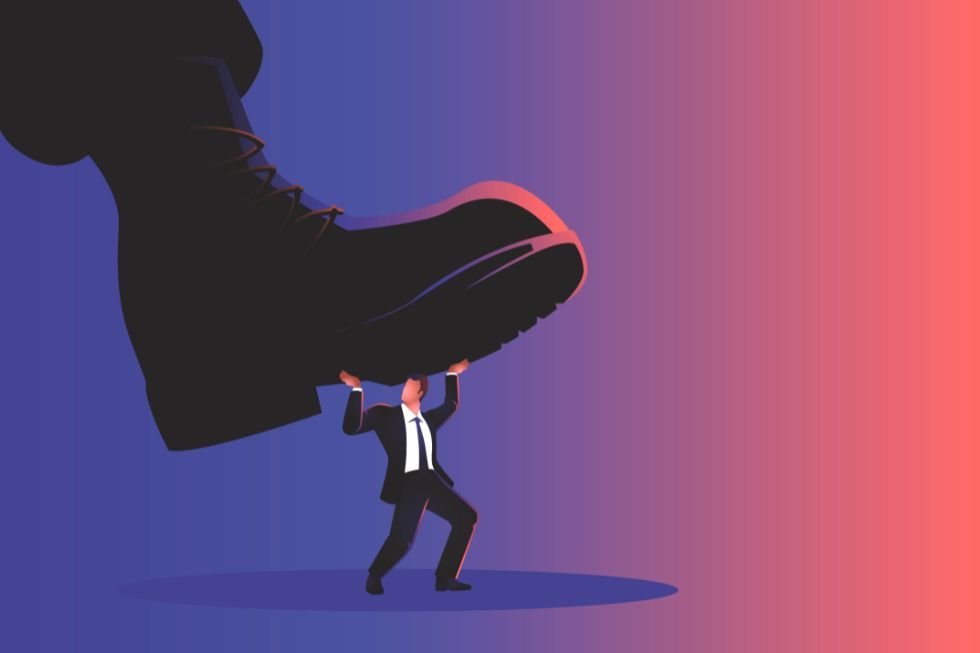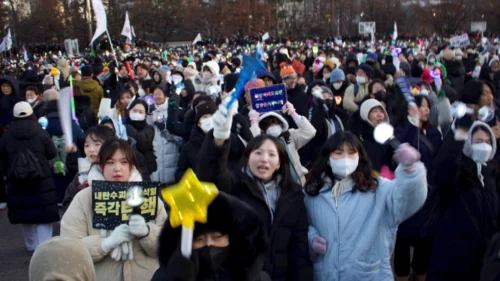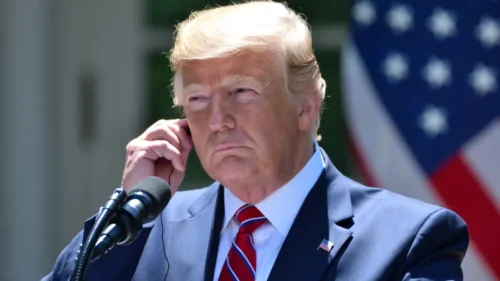US President Donald Trump recently chastized South Korean President Lee Jae-myung and the Democratic Party of Korea (DPK) for their efforts to oppress all right-wing ideology in South Korea and persecute their political opponents. Although Lee and his government have feigned ignorance and attempted to explain away their misdeeds as the necessary result of his predecessor’s so-called self-coup, Trump is absolutely correct: Right-wing ideology is being relentlessly purged from the country.
Yet South Korea is by no means an outlier in international politics. In fact, virtually every nation that has been forced to endure the advent of a left-wing regime over the course of the past decade has visibly punished right-wing ideology and politics.
Right-wing persecution in the West and East
Just take Europe, where conservative philosophies are routinely oppressed. Marine Le Pen, president of the National Rally party in France’s National Assembly, was recently and unjustly convicted of embezzlement and barred from running for political office for five years. The reason? Because she is an unabashed populist and a constant vector for right-wing values in France.
In Germany, politicians have long hidden behind the country’s infamous Brandmauer (“firewall”), refusing to work with any right-wing political parties or values in an overt effort to prevent a resurgence of right-wing politics or ideology. It is now almost impossible to purchase books by even world-renowned conservative authors there, because they have been shamefully blacklisted and banned.
In Canada, since the Liberal Party took over in 2015, all right-wing politics and ideology have become openly oppressed. Right-wing political actors such as Sean Feucht and Tamara Lich have been consistently persecuted for their beliefs and denied numerous fundamental human rights, including freedom of expression and religious liberty.
Former Canadian Prime Minister Justin Trudeau frequently misrepresented populists as some species of crypto-Nazi and attempted to associate all right-wing ideology with the accusations of bigotry and fascism that have been heaped upon Trump. His crusade to outlaw populist ideology and right-wing values was so all-consuming that it compelled him to violate the Canadian Charter of Rights and Freedoms in an effort to oppress the Freedom Convoy during the COVID-19 pandemic emergency.
Meanwhile, Lee and the DPK have relentlessly cracked down on all right-wing ideology and politics in South Korea. The party has forcibly attempted to preclude South Koreans from exercising their rights to freedom of expression and political assembly in an attempt to censor all right-wing ideology from public discourse. Since its victory in South Korea’s election this year, the DPK has brutally persecuted its political opponents and any right-wing political actors.
In fact, the DPK has leveraged its newly minted special counsel to raid the headquarters of its political rivals, the People Power Party (PPP), with impunity. It has even broached legislation that seeks to dissolve the PPP entirely.
Americans under attack
Although Trump has labored valiantly to destratify American society and reestablish the fundamental liberties of all Americans, right-wing ideology has become openly persecuted in America since the presidencies of Joe Biden and Barack Obama. Since Trump’s first presidency in 2016, left-wing extremists and groups such as antifa have been permitted to attack Trump supporters and right-wing rallies and events.
In truth, anyone who is an open conservative, never mind an unabashed populist, is under constant threat of violent attack in the United States.
Trump’s 2024 presidential campaign was marred by various assassination attempts by deranged leftists intent on “saving” America. The most famous was Thomas Matthew Crooks, a disgruntled left-wing extremist who, in his attempt to end the life of the now commander-in-chief, killed a Trump supporter and severely wounded three others.
Oppression continues internationally
Despite its abhorrence, the open persecution of right-wing ideology and politics that has gripped South Korea during Lee’s regime is by no means abnormal or uncommon within the international political system. Unfortunately, as I see it, virtually every nation that has been forced to endure the advent of left-wing regimes and politics over the past decade has oppressed and persecuted right-wing ideology and politics in its society.
It’s clear that any person who refuses to worship at the altar of liberalism will inevitably be forced to confront a grim reality: The conservative has become the most openly scorned and oppressed minority of the modern era.
[The Washington Times first published this piece.]
The views expressed in this article are the author’s own and do not necessarily reflect Fair Observer’s editorial policy.
Support Fair Observer
We rely on your support for our independence, diversity and quality.
For more than 10 years, Fair Observer has been free, fair and independent. No billionaire owns us, no advertisers control us. We are a reader-supported nonprofit. Unlike many other publications, we keep our content free for readers regardless of where they live or whether they can afford to pay. We have no paywalls and no ads.
In the post-truth era of fake news, echo chambers and filter bubbles, we publish a plurality of perspectives from around the world. Anyone can publish with us, but everyone goes through a rigorous editorial process. So, you get fact-checked, well-reasoned content instead of noise.
We publish 3,000+ voices from 90+ countries. We also conduct education and training programs
on subjects ranging from digital media and journalism to writing and critical thinking. This
doesn’t come cheap. Servers, editors, trainers and web developers cost
money.
Please consider supporting us on a regular basis as a recurring donor or a
sustaining member.
Will you support FO’s journalism?
We rely on your support for our independence, diversity and quality.









Comment
Editorial standards
Bold language has its place in opinion writing. But as editors, we also have a duty to ensure proportion and accuracy. Terms such as “relentlessly purged” or “brutally persecuted” risk overstating matters. They can provoke emotion but obscure reasoning — what some call cogito interruptus. Such phrases evoke gulags or inquisitions, which are far removed from Mme Le Pen’s legal proceedings.
This is precisely why editorial standards matter:
By upholding these principles, we serve both our readers and democratic discourse.
Firstly, I absolutely stand by all of the adjectives/language/etc. that I used in the piece as it was originally submitted to the Washington Times. More importantly, get over yourself. It’s an opinion piece, not a medical report.
Now, let’s get to business on your lies.
1. Marine Le Pen’s extraordinary sentence was very much a result of her open persecution. The presiding Judge, Bénédicte de Perthuis, punished Le Pen with a four-year prison sentence and barred her for five years from any political office, despite the fact that, over the past decade, countless other French and European politicians have been convicted of embezzlement and other financial crimes, and yet none of them have been barred from participating in France’s political ecosystem or stripped of their right to political self-determination in any capacity. For instance, in 2020, France’s former Prime Minister, Francois Fillion, was sentenced to a mere “five years in jail, three of them suspended, for embezzling public funds.” In fact, Judge de Perthuis actually explicitly stated that Le Pen’s extreme sentence is a direct result of Le Pen’s “serious and lasting attack on the rules of democratic life in Europe…especially in France,” and the severe risk to public order that Le Pen and her politics represent, not her crime of ‘embezzlement’.
2. The pandemic context is irrelevant to the persecution of the Freedom Convoy and Tamara Lich in Canada. In 2024, Canada’s Federal Court explicitly confirmed that Prime Minister Trudeau “…violated the Charter right to freedom of expression and the right to be secure against unreasonable search or seizure.” and ultimately concluded that “The federal government’s decision to declare a public order emergency under the Emergencies Act in early 2022…[was] unreasonable and…not justified [by] the facts or the law.”
3. Conservatives have absolutely been “blacklisted in Berlin”, don’t lie. Here is the source. I don’t know why it wasn’t originally included in the article that FO republished:
Arthur Roffey, “Douglas Murray has been blacklisted in Berlin”, The Spectator, (2025). https://www.spectator.co.uk/article/douglas-murray-has-been-blacklisted-in-berlin/
4. President Lee is very much South Korea’s President.
Again, you’re just lying.
TBH, you’ve done a whole lot of nothing outside of lie and repeat your own personal opinion under different motifs and veneers. Ex. this piece “presents itself as global analysis but in fact reads as partisan polemic”
And now you’ve changed/deleted your original comment and spewed all this other mess, simply in order to hide your own failings. Pathetic.
I appreciate the opportunity to clarify a few points — not from a place of personal disagreement, but in defense of democratic norms, institutional integrity, and consistent editorial standards.
“Men are qualified for civil liberty in exact proportion to their disposition to put moral chains upon their own appetites.” – E.Burke (on the French Revolution)
Democracy and the rule of law
In constitutional democracies, legitimacy rests on two pillars: laws applied equally and transparently, and institutions that act as checks and balances. When exceptions to these principles are treated as routine, democracy is weakened.
Marine Le Pen’s recent case illustrates this tension. While her sentence was described by some as unusually severe, the presiding judge justified it in light of its broader impact on democratic life. As the Carnegie Endowment notes, “the rule of law in Europe depends on ensuring that violations are addressed in ways that preserve democratic institutions.”
Conservatism and accountability
Conservative values have long been part of Europe’s political landscape, including in Germany. The line is crossed, however, when rhetoric incites hostility or undermines institutions themselves. Holding politicians accountable in such cases is not persecution, but a safeguard of democratic life.
As Umberto Eco once observed, extremist movements exploit fear of difference, often through language. Similarly, German linguist Viktor Klemperer documented (from 1933 onwards in Germany) how small shifts in words could normalize harmful ideas over time. These are not comparisons to today’s individuals, but reminders of why careful language matters in public debate. Although a comparative linguistic analysis of today’s debaters could indeed be enlightening.
Germany offers a concrete example: parts of the AfD have been formally classified by the domestic intelligence agency as extremist, not simply conservative. That distinction is important.
Free speech in practice
The US First Amendment is unusually broad. European democracies balance free expression with other rights such as dignity and non-discrimination; not to silence conservatives, but to reflect different constitutional traditions shaped by historical memory.
That said, freedom of speech is contested everywhere. In Canada, a court recently ruled that the Emergencies Act violated rights during the Freedom Convoy. In the UK, “Non-Crime Hate Incidents” raise concerns about proportionality. Even in the US, employment consequences, such as firings after political comments, show that legal protections do not always translate into practice.
“Freedom first” thus means different things across contexts, and consequences often fall unevenly.